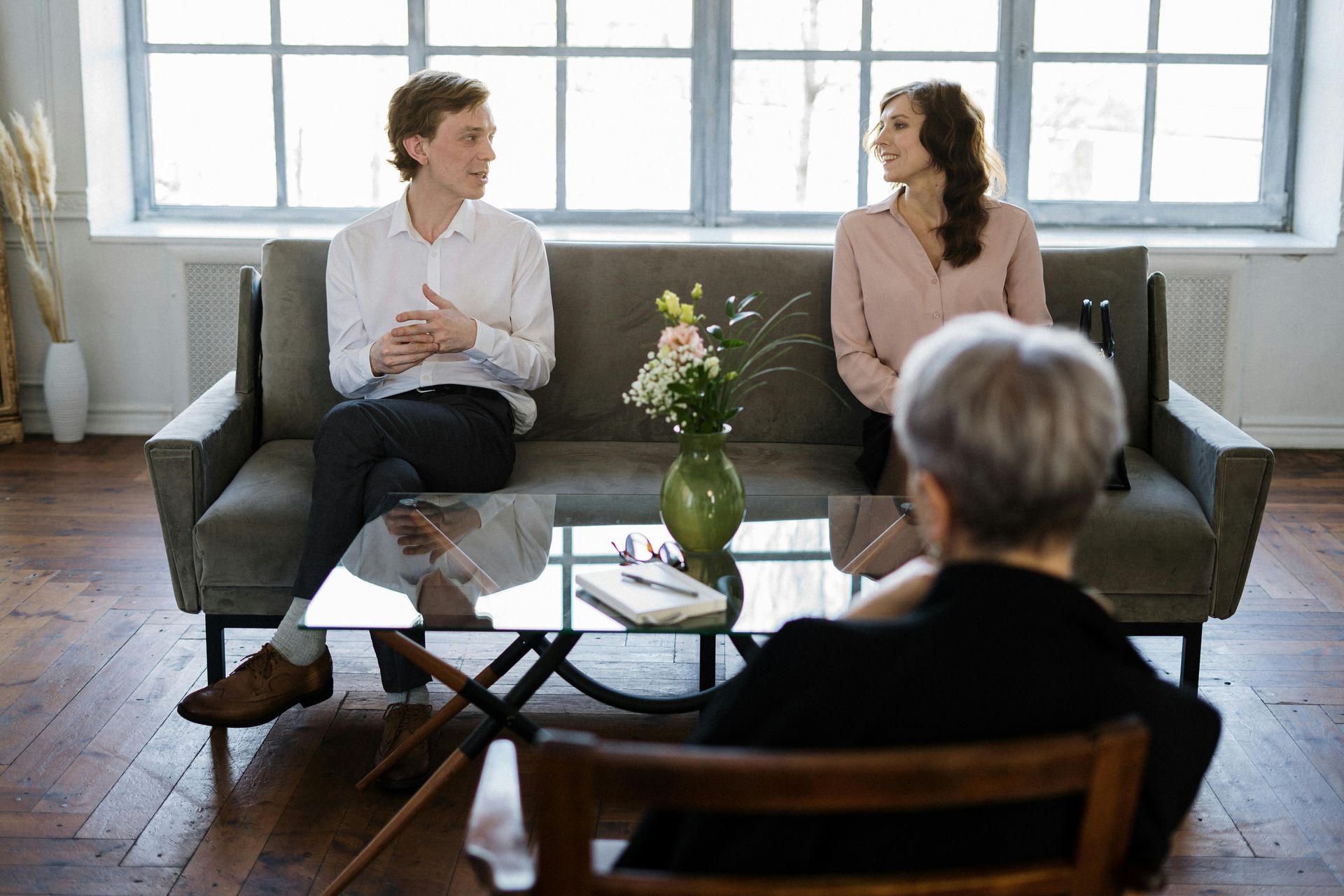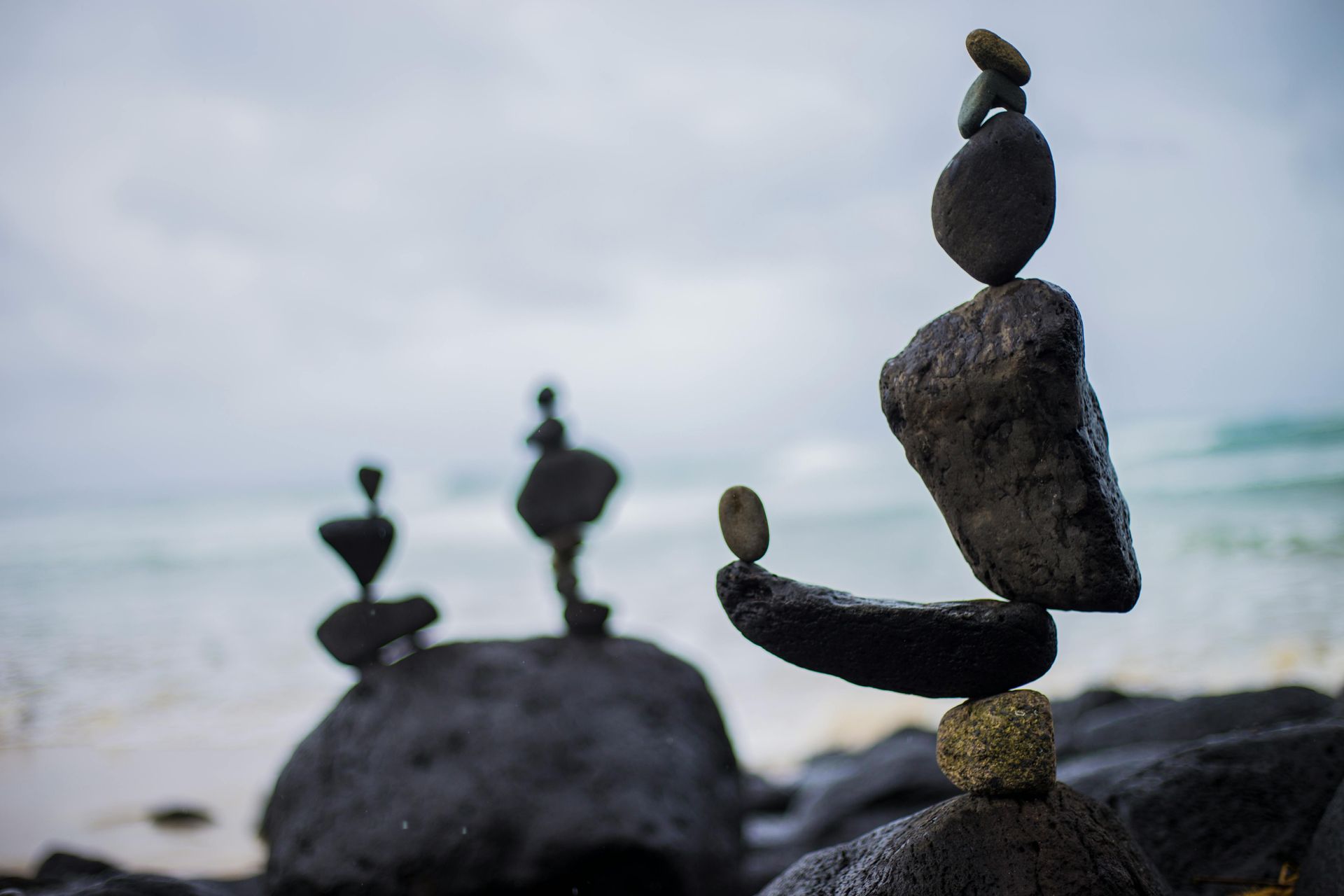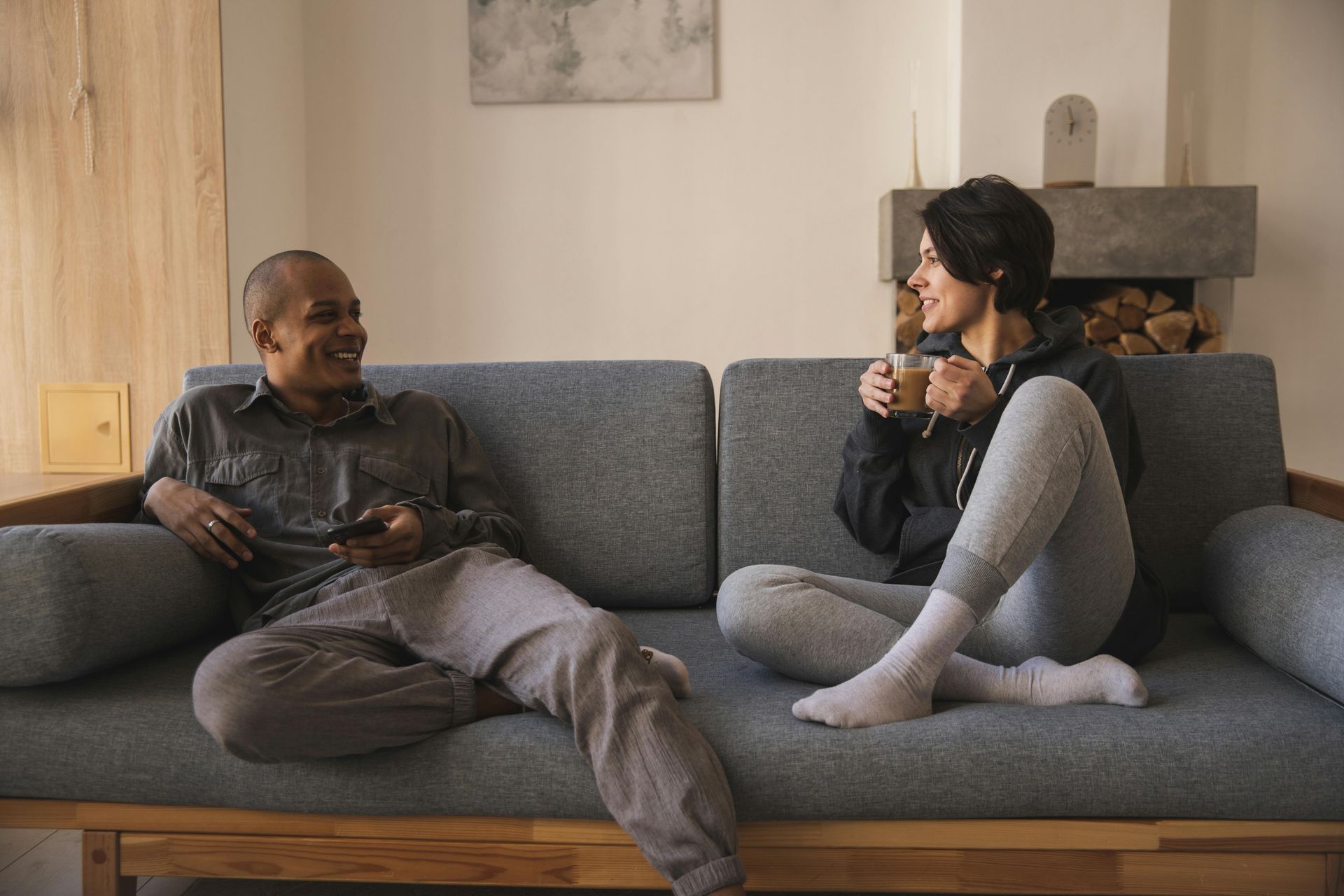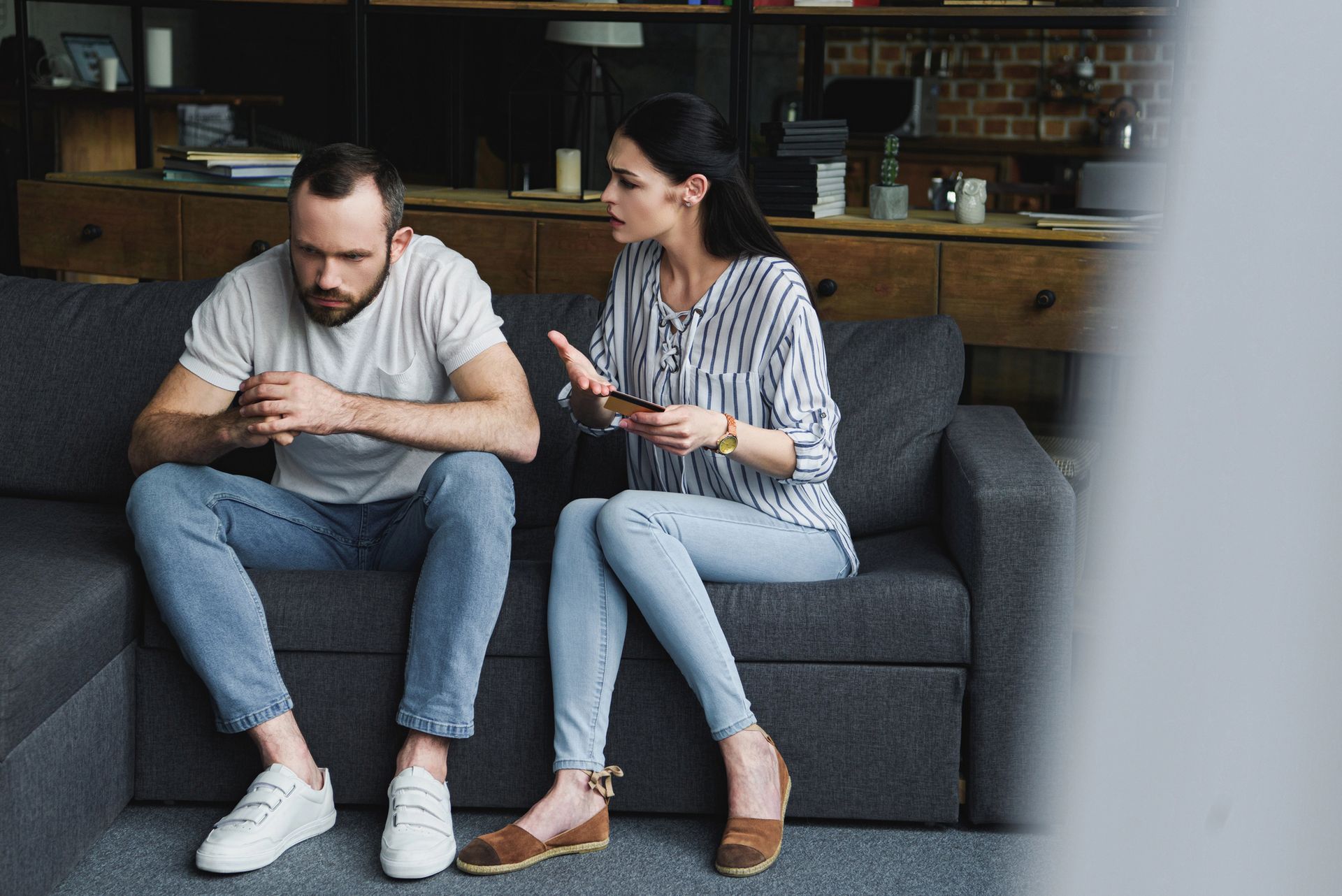The Best Version of Yourself
Do you look inward and are you being the best version of yourself?
When we first meet, we are the best version of ourselves. We take care of ourselves and show up as our best self. In the first few weeks and months of a relationship, we are on our A game. We dress up, plan dates, show up, have fun, we listen and we are in a good mood and say yes to new experiences and adventures. We are also curious and engaged and ask questions.

Once comfortable, we stop trying and problems surface. We stop trying to be happy, present and fun. We fall back into familiar emotional patterns, some that we have learned decades ago, long before we met each other. After the honeymoon period, we relax and regress into old parts of ourselves. When we are stressed, these old patterns surface more frequently. A way to remember this is: Under Stress, We Regress. We bring our stress home to our partner while we are on our best behaviour with our co-workers and friends. Turning towards negativity, we become pessimistic, desperate and depressed. We are no longer full of life and positive.
Loving and fulfilling relationships are determined by two things: whom we choose to love and how we show up. We must strive to be the person we want to become in relationship. We can choose partners, who we think are good matches, look for important traits, raise our standards and not settle, however, if we don’t look inside ourselves and become the person, we want to be in relationship, we won’t be closer to having the relationship we want. The person that is willing to look in the mirror and grow is closer to the relationship they want to have.
Inside is a child who yearns to be loved by a partner the way a parent would ideally love us unconditionally. The truth is that romantic love always comes with conditions.
We can’t be consistently moody and stressed out and uncommunicative and expect someone to love us anyway.
We take our partners for granted, getting comfortable that are partner will never leave us. We must break old relational patterns. In the beginning we are much more able break these patterns because we are motivated by the novel and new relationship. Later, we lose the motivation because we think the relationship can stand on its own. We become complacent and fall back into familiar patterns of feeling hurt and abandoned and become walled in, shut down, protest angrily.
What if we could stay motivated for ourselves and for the relationship months and years into it?
Many of us can attract lovers. We are warm, playful, attractive and charming. We start out strong, and a few months in…we stop being playful and energetic and then fight with our partner. It can take a while for us to figure out that we are the common denominator in our relationships. With awareness, we can figure out that we have destructive relational patterns that show up when we are susceptible to stress. Most of us are unaware that are emotional states impact our relationships. However, we are responsible for the impact.
We have to bring the “light” home to our partner instead of spreading it to friends, co-workers or strangers. When we consistently give the best part of ourselves to everyone else but our partner, we destroy our relationships. We have a bad habit of taking our relationship for granted and thinking we can get away with it. Many of us forget that we need to nurture our relationship and we nurture it best when we nurture the relationship with ourselves. Our partner is not responsible for taking our stress away!
What did we see with our parents? Were they able to manage their own stress and overwhelm? Were they preoccupied with themselves and blaming their partner? Our history with our parents may have taught us how to respond to stress.
Now, we have an opportunity to do things differently. Learning the tools can help you feel more balanced. Then you can consistently bring that good energy to your relationship. Note: Sometimes you will feel stressed and feel down. The key is to not burden your relationship by not taking care of yourself and expecting your partner to deal with it. You don’t expect your co-workers to deal with it.
Begin to bring forth the higher version of yourself.
Romantic relationships are a mirror. They show us where are work lies. We all have work to do. We are all tasked at working hard to overcome behaving like a child when we are triggered and heal parts of our past. Being accountable (instead of blaming others) and learning better communication skills and implementing them are necessary. People think that if they meet the right person, or their partner finally changes…they won’t have work to do. Not true. Even with the best partner, we will still have to face ourselves and confront generations of conditioning passed down from our families and society. Conditioning that has convinced us to not be vulnerable because we might be abandoned. Conditioning that taught us that are partners are not a gift. Conditioning that the “one” will make us happy.
Choosing a partner is one of the most important decisions we will every make in our life. Just as important is choosing to show up as your best self consistently. A common reason people repeat patterns is because changing partners is not a solution. We can’t divorce ourselves. In other words, we take ourselves everywhere we go. Thus it is important to face the challenge of growing. Take care of yourself by meditating every day, exercising, and eat healthier. And cherish the people you love knowing that you could lose them at any time.
Your Wise Adult versus Your Adaptive/Wounded Child
None of us is perfect. All of us have pain and bad habits and everyone has the fear that they are not enough. Inside everyone is a scared child desperate for love and to feel safe. You also have a Wise Adult that is certain of its value and inherent worth. This is the part of us that isn’t constantly searching for control and to feel good enough. It is calm, present and confident, sometimes playful and passionate. It is the part of us that responds instead of reacting and choosing love over fear and doesn’t hold grudges. It is kind and compassionate to yourself and others. It takes risks and is willing to be vulnerable. Your best-self communicates honestly and focuses on repairing connection after conflict instead of blaming. It listens to others and sincerely apologizes when it makes a mistake. It seeks to understand others instead of judging them. It has a sense of humour and it doesn’t take itself too seriously. It knows what is best for you and knows what makes you happy and what is standing in the way of your peace. It is your most authentic self and always available to you.
The greatest battle we face is with ourselves. Moving into our Wise Adult takes discipline and takes a strong unwavering desire to be whole and be better. By searching for the wiser, kinder and more stable part of us and giving it the steering the wheel, the better our relationship to ourselves will be and the better our relationships will be. It is easier to be our Wise Adult with our friends and strangers and it becomes a whole other challenge when we are triggered by our partner or family member.
How we respond to a trigger is the ultimate test of our maturity and we will fail that test many times.
It takes concerted effort and commitment to learn to respond from our Wise Adult versus reacting form our fearful, vengeful, self-righteous Adaptive/Wounded Child. We all have pain and trauma and many of us are stuck in survival mode for so long and forgot what it is like to not have to be in survival constantly looking for security.
Our insecurities, pain and fears are part of being human. We each have a lower self that can be immature, spiteful, jealous and insecure, controlling and demanding. When we are pushed to the edge of our insecurity and when we just focus on needing to be validated and significant, we can behave in ways below are character. Our Adaptive Child will sabotage and will punish and blame our partners for feeling insecure.
Because we entered the relationship with these insecurities, we will shut down because that is what dad did. We will criticize because that is what mom did to dad and we will people-please because that is what we did as children and it worked back then. When we become a mature adult in relationship, it is crucial that we become more aware of when we are judging, reacting and experiencing our partner through our past.
Our higher self always takes responsibility for our projections and unfair blaming and punishing. In our higher self, “it is not you, it is me and it is my fear, my trigger”. With repair, we consciously say: I am sorry, I love you. This is the work we all have to do, always.
Every couple that I have worked with believes that the other partner needs to change. The secret all relationship therapists and counsellors know is that it begins with you. Be the change that you want to see in the world, said Gandhi.
Attend a Couples Weekend to learn the communication skills to enhance your relationship.
Attend a Stress Detox to learn how to dissolve your stresses and hurts and live with more awareness.
Register for our Newsletter and receive a Free Love Chat Package
- The 5 Steps to a Better Relationship
- Ongoing Monthly Relationship Tips
- If you want more love in your life, our relationship Love Chat Package is an easy cost-free first step.

















